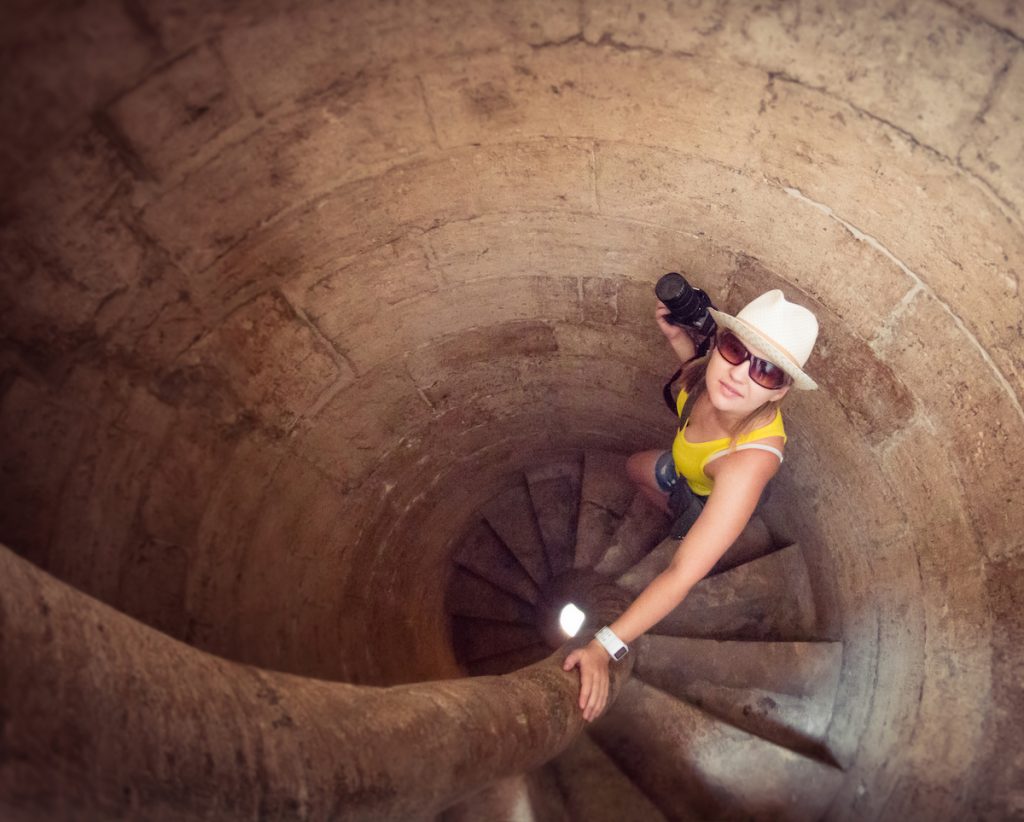I met a beautiful person. She was so perfect to me.
Later I found it she was chronically depressed.
It seemed I wanted her to be perfect. She wasn’t.
She was living in her head and engulfed by sadness; she was cynical, cold, and detached because of her emotional overwhelm. However, I could see her potential was grand and wonderful. I wanted to be there for her. I wanted to help, to reach and touch her heart, and maybe to save her from drowning in an emotional swamp. I wanted so much to sing to her in her darkness, and hear her sing back to me in my darkness.
Did I see more of myself in her than I wanted to? Was I being called to go deeper into the forest – or face the storm head-on without shrinking? Carl Jung wrote something that I find intriguing and particularly relevant, “The world will ask you who you are, and if you don’t know, the world will tell you.”
I believe that it is in the questions, in the void, in the unknown, that I am unfolding.
As an empath, and I say this without intending any judgement, it felt like she couldn’t breathe, and I felt like she would swallow me down with her—not out of selfishness, but out of need or desperation.
As a man, I felt called to serve with honour and duty. I felt an innate desire to be strong for her. This instinctive yearning was triggered deep in my soul. Was that a bad thing? The alarm bells were ringing, and my manhood was being tested. I was feeling like a man that wants to be needed.
Responsibility and having something to live for is valuable. Some have even argued that meaning is the key to human fulfilment. It is inherently unsatisfying to live without purpose. Men want to help women, and the neediest ones need our help the most. They call to me to stand up for them.
Discernment is essential. Did I walk away and send love from a safe distance—or dive in deeply and attempt to save her? And by saving her, save myself!
I chose to step away to preserve myself, out of self-care and self-respect. I chose not to sacrifice myself for her needs.
Even the nicest-intentioned people are sometimes best kept at a distance. Did I make the right call?
We do have the right to choice – to choose our lessons – to choose who we are in-relationship to. If we feel like we are drowning, then we have a responsibility to do something about it. Hillel the Elder taught in Ethics of the Fathers, 1:14,“If I am not for myself, who will be for me? But if I am only for myself, who am I? If not now, when?”
We have to strike the balance between serving ourselves, our values, self-respect, honour and dignity—and serving our community, creating a perfect symphony between the relationship we have with ourselves and our relationship to others. There is an integral connection between the tadpole and its environment, and fellow tadpoles.
Many of the great spiritual teachers have reflected on human beings as being fish in the ocean, all connected to this essence called life (the water), yet also feeling separate from it. If the ocean is love, then we are the fish swimming inside.
In this way of thinking, is there any real separation? Or are we really all the same? As Yogi Bhajan puts it, “I am Thou, Thou is Me, Me is Thou.”
If we feel connected, are we wise to step away, or is it even possible to disconnect if we are innately connected? It’s like cutting off our life-force, or removing a fish from the sea—it would merely drown. Yet the sea is the ether of love. It is that which some call God. Disconnection is impossible.
I am reminded of an ambiguous poem by the British poet Stevie Smith, ‘Not Waving but Drowning,’
“Nobody heard him, the dead man, But still he lay moaning…”
This line stings. What was Smith referring to? (The subject) was possibly ignored, and drowning in his emotions and nobody was listening?
All writers, at least on some level, write about themselves. When she was a young girl, Stevie Smith’s father left her family to join the North Sea Patrol. In her prose, she seems to hark back to this abandonment and sense of loss,“…I was much too far out all my life.”
I keep questioning myself, asking how I could have acted differently:
Should I have listened closer? Should I have reached out my hand?
Was there an intrinsic betrayal?
I’ve always believed that beneath conflict and dysfunctional relationships, is merely hurt and painful feelings, or what one may call, the ‘pain-body.’
Hidden between the cracks of one’s ego identity that is desperately holding on to us being right (and the other person wrong), is the loving, authentic soul.
I don’t have all the answers. Nobody does. Ultimately, we all need to make our own choices.
I believe that underlying all our experiences, is the gaining of wisdom and the lesson of unconditional love. This love extends to others, just as it extends to ourselves. For in the end, as Rumi wrote, “Your task is not to seek for love, but merely to seek and find all the barriers within yourself that you have built against it.”
In relationships, sometimes the healthiest act of kindness is to walk away. Not because we are distancing ourselves from another (or our self), but because we are needing to get closer to who we are—to know ourselves. Clearing the swamp can be the most loving thing we can do for ourselves.
Main Image via Pxhere. You are awesome as you are, and I love you! And if you love me back, please click ‘share’ up at the top!
Please follow me on Facebook: davidstarlyte and Instagram: davidstarlyte
New Meditation Transmissions available: Free Meditation Channel:
Starlyte Meditation: please subscribe for free updates.


